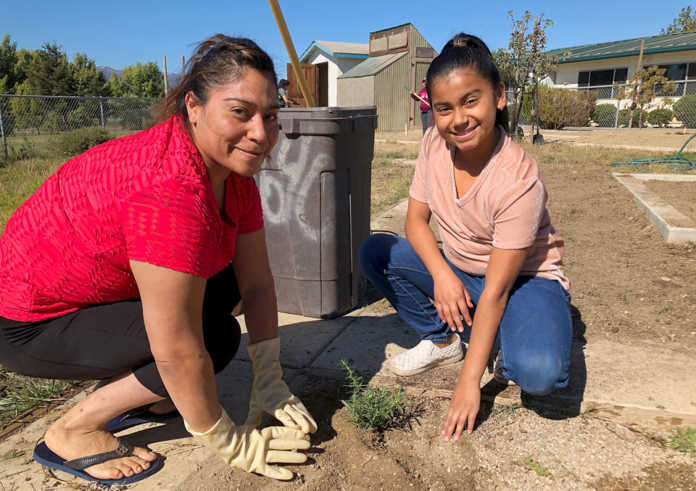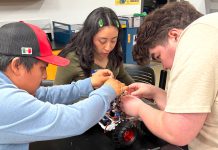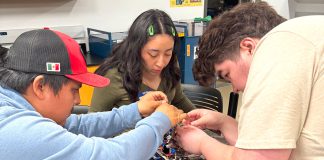
SOLEDAD — South County’s first monarch butterfly sanctuary has been created at Frank Ledesma Elementary School in Soledad, and similar gardens are being planned for surrounding communities in the near future.
Students, parents and staff members from Frank Ledesma Elementary hosted a kickoff event Oct. 5 to prepare the school’s Larry Newman Memorial Garden for the monarch butterfly migration. Parts of the garden were replanted with milkweed and other California-native plants that serve as food sources for the butterflies.
The school received grant funds for the project from the Save the Whales organization and the National Oceanic and Atmospheric Administration Bay Watershed Education and Training Program, which is managed by the office of National Marine Sanctuaries.
“We have had a strong partnership with Save the Whales over the years. They have been instrumental in enriching our fourth- and fifth-grade NGSS-based curriculum with parent connections and field trips,” said Richard Radtke, principal at Frank Ledesma Elementary. “This year we are excited to add the Monarch Butterfly Garden Project through Save the Whales. Every student at our school will benefit from the partnership.”
According to Radtke, the revamped Larry Newman Memorial Garden will extend the students’ outdoor learning space and establish a living science lab that will cultivate deeper learning in STEAM (science, technology, engineering, arts and math), environmental stewardship, sustainability, nature appreciation and artistic endeavors.
In addition, Save the Whales Biologist Dan Albro will provide training and education to students, teachers and the community to help them host the endangered migrating butterflies.
Each year the North American monarch butterflies travel up to 3,000 miles during their migration period — the only butterfly species to make such an extensive, round-trip movement across the country. Landscape changes, however, often result in destroying plants that are critical to the monarch butterflies’ survival.
“Save the Whales hopes students will learn that everything is connected,” said Maris Sidenstecker, executive director of Save the Whales. “The use of pesticides in gardens kills not only targeted insects, but often the insects that pollinate our gardens, such as butterflies and bees. We need them to grow our crops and rely on them for our food supply.”
Sidenstecker said the project also gets youth outside and working in the dirt, which teaches them stewardship.
“They can watch their garden grow and see how an area can be transformed into a beautiful thriving area. It builds teamwork and school pride to protect an endangered species, such as the monarch butterfly,” she added.
Save the Whales’ next location for a monarch butterfly sanctuary will be King City Arts Magnet School in King City.
“They have a school garden, and we will augment the garden with plants to attract the monarch butterflies and do educational lessons about the butterflies,” Sidenstecker said.
The organization is also working on obtaining grant funds to establish other butterfly gardens in Greenfield and Gonzales.













